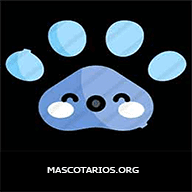Content |
|---|
History
The Welsh Terrier it is a medium-sized and high-performance terrier. Also often called the “small Airedale Terrier“, because it is very similar to it. But it is an independent terrier and not a miniature version of the Airedale Terrier. But, both are not only externally, but also in their nature quite similar. The name Terrier is derived from the Latin “Terra” for the earth. So originally they were dogs for work on the land. The first evidence is given by the ancient Romans, in the Middle Ages terriers were already described in detail. Their home is in the British Isles, where you can find them all over the country. In the stables they kept the little vermin. Even the big rats were not a problem for them. The hens, pigeons and rabbits protected them from martens and foxes.
It is said that the Welsh Terrier has evolved from Black y Tan Terrier, that were widespread for centuries but are now extinct. Despite this ancient history, entered the stage of modern pedigree dog breeding relatively late. The ancestors of the Welsh Terrier spread throughout the British Isles. But, It was in Wales that the first breeders began to establish this original type of terrier as an independent breed in modern times.. In 1886 the first Club de Welsh Terrier. Since then the breed has been bred according to essentially the same criteria that continue to be given in the current standard.. In 1954 the breed was officially recognized by the FCI (International Cynological Federation).
Physical characteristics
The Welsh Terrier is one of the highest performing terriers. His appearance is fast, Intelligent, balanced and compact. It is its external appearance that makes it unmistakable. His height exactly conveys his character: He is very attentive, ready for all actions like a charged power pack, but at the same time calm and without any aggression. This is underlined by the expression in his eyes, by the way he wears his ears and last but not least, for self-confidence, the tail that stands erect. The head of the Welsh Terrier is elongated and ends in a lush beard at the front. Ears are bent forward. The coat is also of a special kind. It's hard, very dense and abundant. Colors are preferred black and tan, or dark gray black with fiery reflections, no brush strokes of ortho color on the fingers. Males have a height at the withers of about 40 centimeters, the weight is about 9 to 10 kg.
Character and skills
The Welsh Terrier has first of all a character that distinguishes practically all terriers. The Welsh Terriers they are temperamental dogs that never say no to any adventure. They are lively, bright, concise, rapid. They are always alert, they are not aggressive, but they are not afraid and in an emergency they are ready to fight. They are also extremely cooperative and docile.. The official standard describes the nature of the Welsh Terrier as: “Affectionate, obedient and easy to handle; happy and grumpy, rarely shy in nature”. bold and fearless, but in no way aggressive; although it can be sustained at any time, if required”.
It is a great pleasure to work with these dogs. The Terriers galeses they are open and trusting, friendly, brave and intelligent. They are faithful to their humans and adapt well as family dogs if their strong personality is not only respected., but also appreciated and managed. Its suitability as a family dog ​​also requires that when Welsh Terrier given the proper occupation, or better yet, the challenges. Just going for a walk is not enough for a Welsh Terrier, especially as a young dog.
Fitness
Maintaining a Welsh Terrier no problems. They have no demands regarding the size of the floor. If anything, the biggest challenge is in his temperament. for a Welsh Terrier there is nothing worse than boredom. That is why you need challenges of a physical and mental nature.. Hunting work or sports and games should be on the agenda every day. The Welsh Terriers they are good companions for active and sporty people. But, when moving in nature, keep in mind that the hunting dog still sleeps in the terrier.
The Welsh Terrier they are very suitable for various sports with dogs. They are well positioned as companions to a runner, but also from a runner or cyclist, as long as these sporting challenges are kept in moderation. The Welsh must be used to other pets from puppyhood. Welsh Terriers are very suitable as playmates for children, they are always in a good mood for fun and robust enough to play with children. But, the house rules must be correct and the terrier must know his role in the family. You can do anything with a Welsh Terrier; he will know how to behave even in the best restaurant. Due to its manageable dimensions it is also very practical. It is always robust.
Education “Welsh Terriers”
The breed can be trained very well and, if you want, even educated. The clear announcement and the consequence are the miracle words here based on a respectful and loving relationship with the master or caretaker.. The Welsh Terriers they need a consistent education from the puppy's age. On this basis they can be trained for a wide variety of tasks. Due to its high willingness to learn and its body measurements it is also suitable for a committed beginner.
Care and health “Welsh Terriers”
The Welsh Terrier has a robust nature. The Terrier Club recommends that your hard, lean coat, which together with the dense and soft undercoat forms the call “english jacket”, be professionally trimmed three or four times a year. It also, brushing and combing regularly is enough care.
The Welsh Terriers they are a very healthy breed, but they may have some genetic health problems. These may include, the breed may have glaucoma, cataract, dry eye and lens dislocation. Hypothyroidism has also been reported..
The breed also has problems with allergies and dislocation of the patella. (a condition in which the knees come out of their normal position). Although there are no screening tests for those and other conditions that can affect the Welsh Terrier, your puppy's breeder must be willing – in fact, anxious – to review the health records of your parents and close relatives, and discuss the incidence of those particular health concerns on their lines.
Remember that after you have welcomed a new puppy into your home, has the power to protect you from one of the most common health problems: the obesity. Keep a Welsh Terrier with a proper weight is one of the easiest ways to prolong your life. Make the most of your preventive skills to help ensure a healthier dog for life.
Nutrition / Food
The power of the Welsh Terrier has no problems.
Life expectancy “Welsh Terriers”
The Welsh Terrier it has an average life expectancy of good 12 years.
Buy “Welsh Terrier”
The best thing to do is buy your puppy from Welsh Terrier locally to a breeder member of the Terrier Club, or you can search the shelter for a Welsh or similar terrier. A puppy of this breed of dog costs 1200 euros and more.
Characteristics "Welsh Terrier"
Coexistence is important that you have with your new friend. Before considering the acquisition of a dog of the breed "Welsh Terrier" you know certain factors. Not all breeds of dogs are apt to live in an apartment, you must take into account his character, their need for exercise, their interaction with other pets, their care and if you have small children, their level of tolerance towards them.
Adaptation ⓘ5.0 out of 5 stars (based on 1 review)
|
friendly dog ⓘ2.0 out of 5 stars (based on 1 review)
|
hair loss ⓘ1.0 out of 5 stars (based on 1 review)
|
|---|---|---|
Affection level ⓘ4.0 out of 5 stars (based on 1 review)
|
Need for exercise ⓘ4.0 out of 5 stars (based on 1 review)
|
Social need ⓘ3.0 out of 5 stars (based on 1 review)
|
Home ⓘ4.0 out of 5 stars (based on 1 review)
|
Toilet ⓘ4.0 out of 5 stars (based on 1 review)
|
Friendly with strangers ⓘ3.0 out of 5 stars (based on 1 review)
|
barking ⓘ4.0 out of 5 stars (based on 1 review)
|
Health ⓘ2.0 out of 5 stars (based on 1 review)
|
Territorial ⓘ5.0 out of 5 stars (based on 1 review)
|
Cat friendly ⓘ1.0 out of 5 stars (based on 1 review)
|
Intelligence ⓘ4.0 out of 5 stars (based on 1 review)
|
Versatility ⓘ3.0 out of 5 stars (based on 1 review)
|
Child friendly ⓘ4.0 out of 5 stars (based on 1 review)
|
Surveillance ⓘ4.0 out of 5 stars (based on 1 review)
|
joy ⓘ5.0 out of 5 stars (based on 1 review)
|
Images "Welsh Terrier"
Photos:
1 – Welsh Terrier by publicdomainpictures.net
2 – Welsh Terrier during the international dogs show in Katowice, Poland by https://es.m.wikipedia.org/wiki/Archivo:Terier_walijski_suka_2009_pl.jpg
3 – Welsh Terrier by Shleiderbmx / CC BY
4 – Tallinn, Estonia, CACIB duo 2013, August 17-18 by Thomas / CC BY-SA
5 – A Welsh Terrier by Brian chee / CC BY
6 – Welsh Terrier by https://pxhere.com/es/photo/847899
Videos "Welsh Terrier"p
Type and recognitions:
- FCI CLASSIFICATION: 78
- Group 3: Terriers
- Section 1: Large and medium sized Terriers. Without working trial..
Federations:
- – FCI – Terriers 1 Large and medium-sized terriers. ⓘ
- – AKC – Terriers ⓘ
- – ANKC – Terriers ⓘ
- – CKC – Terriers ⓘ
- – KC – Terriers ⓘ
- – NZKC – Terriers ⓘ
- – UKC – Terriers ⓘ
FCI breed standard "Welsh Terrier"
Alternative names:
1. Welshie, WT (English).
2. Terrier gallois (French).
3. Welsh (German).
4. Welsh (Portuguese).
5. Terrier galés (español).
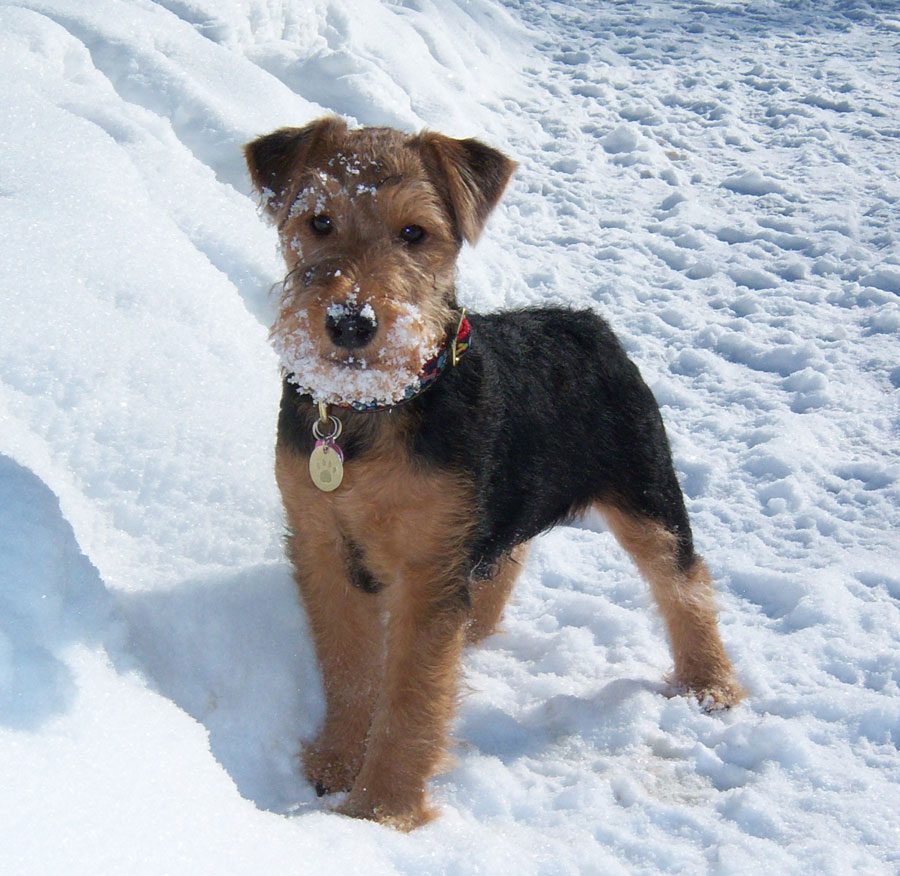
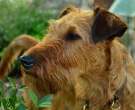
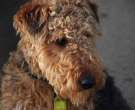

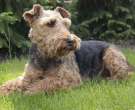
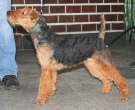

 Terrier Gales (Welsh Terrier) – Breed of dog
Terrier Gales (Welsh Terrier) – Breed of dog WELSH TERRIER DOG HAIRDRESSING – HAND STRIPPING CON ALBERT CABRERA
WELSH TERRIER DOG HAIRDRESSING – HAND STRIPPING CON ALBERT CABRERA Bruno – Welsh Terrier – 4 Weeks Residential Dog Training
Bruno – Welsh Terrier – 4 Weeks Residential Dog Training Airedale Terrier Lenny & Welsh Terrier Martin #11
Airedale Terrier Lenny & Welsh Terrier Martin #11